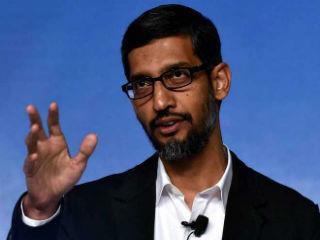Google CEO – AI will be bigger than electricity or fire
Artificial Intelligence will save us not destroy us, Google’s CEO, Sundar Pichai, said at Davos

“AI is probably the most important thing humanity has ever worked on. I think of it as something more profound than electricity or fire,” he said. “Any time you work with technology, you need to learn to harness the benefits while minimising the downsides.”
by
Ceri Parker*
“AI is probably the most important thing humanity has ever worked on. I think of it as something more profound than electricity or fire,” he said. “Any time you work with technology, you need to learn to harness the benefits while minimising the downsides.”
While some thinkers – notably Professor Stephen Hawking – have warned that AI could wipe out mankind, Pichai was optimistic. He said that the technology could eliminate many of the constraints we now face, helping us for example to make “clean, cheap, reliable energy” a reality.
Pichai, who grew up in India, spoke of the transformative power of technology.
“Growing up, I didn’t have a phone for a while, I waited five years. We got a telephone, it fundamentally changed our lives... I remember the joys of technology and I think that will be true for AI. It’s important for us to explain that and bring the world along with us.”
He conceded that the risks were “important”, and called for international cooperation on the scale of the Paris climate agreement to manage them.
“Countries need to demilitarize AI, that’s a common goal countries should work towards,” he said.
Google has recently announced it will open AI research centres in China and in France.
*Commissioning Editor, Agenda, World Economic Forum
*First published in Weforum.org
MORE ON Davos 2018
- Science is universal and unifying
- It’s time to bring our planet back from the brink
- Sir Elton John: 5 leadership lessons from my darkest hours
- Why 2018 must be the year for women to thrive
- Machines can’t dream



 By: N. Peter Kramer
By: N. Peter Kramer

